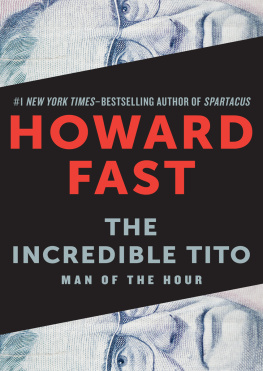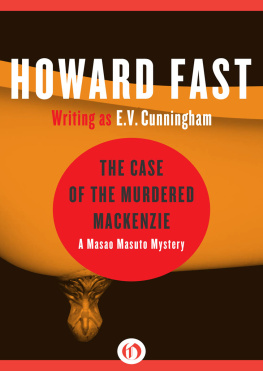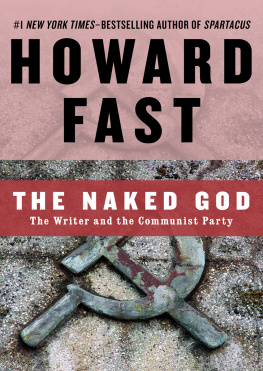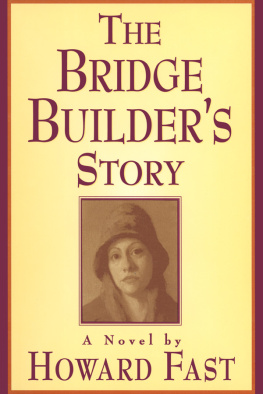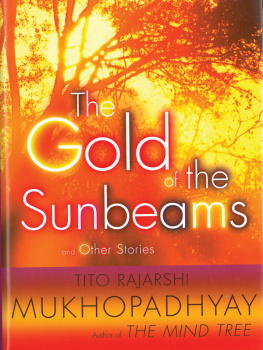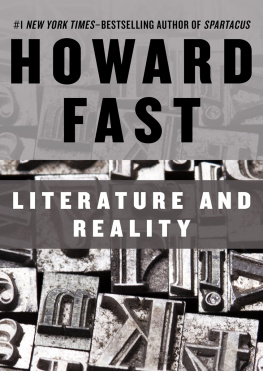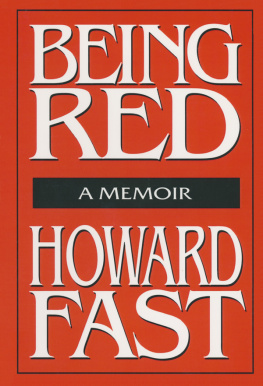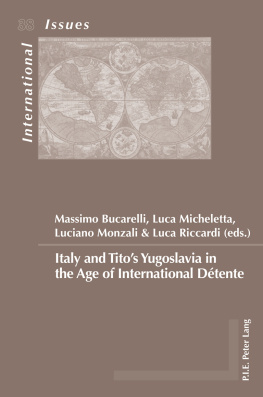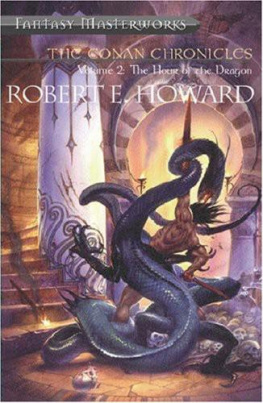UNCLE PETER
I N April, 1942, a year after the Nazi Panzers had raced through Yugoslavia, shattering the Yugoslavian army in ten days, a peasant approached the little town of Foca, in Bosnia. The peasant, a tall, thin man, skin burned brown from sun and weather, resembled a compact, small and mobile arsenal.
In his hands, he carried an Italian tommy gun. He wore a German automatic on one hip, a Hungarian revolver on the other. Three cartridge belts hung from his shoulders. A thin Italian bayonet, slung over his back, completed the international armament.
The peasant had come a long way. His own land was Slovenia, a part of Yugoslavia three hundred miles to the north. He had never seen the town of Foca beforeor indeed any part of Bosnia. But it gave him a sense of comfort to know that he was still in Yugoslavia, that the numerous ridges of craggy mountains he had crossed on his way south were all in Yugoslavia. He was a man born and bred in mountains; and he knew that were it not for those same mountains he would not be alive here in Yugoslavia, a year after the German invasion.
As he approached the outskirts of Foca, a man rose from a clump of shrubbery and pointed a rifle at the peasants stomach.
Halt!
The peasant stopped, observed the man narrowly for a moment, and then lifted both arms, still holding the tommy gun. The man who had stopped him wore a grey uniform that had once adorned a German. Now the insignia were gone. A five-pointed red star was sewn onto the cap.
Where are you going, uncle? the man with the red star asked.
To Foca, if its any business of yours.
And where are you from, uncle?
Slovenia.
The sentry nodded. And how did you get here?
I walked, the peasant said sourly.
That was a long walk for a man your age, uncle, the sentry grinned. And what brings you to Foca?
I came to see a man.
What man?
For all of my age, the peasant observed, I would knock some politeness into your thick headif not for that gun youre holding at my stomach. I came to see Tito.
Now the sentry studied the peasant long and carefully, and then nodded. Come along, he said.
He followed the peasant into town. At the edge, there was a long slit trench, protected with sandbags. There was a machine gun there, a four man crew on the alert beside it. A little way beyond, there was a hut, from which an officer stepped as the two approached.
This one wants to see the marshal, the sentry said, after he had saluted.
The officer nodded. Your name, uncle?
Peter Narovich, the peasant said wearily. Ive walked three hundred miles to see Tito, not to answer every empty-heads questions.
Im afraid youll answer a good many more questions. Come along with me. But youll have to leave your guns here, uncle.
My guns? I dont part with my guns. I killed enough damned fascists to get them.
Theyll be held for you, the officer said patiently. As soon as youre through, uncle.
It took ten minutes more of argument before the peasant would give up his guns. Then he followed the officer down the main street of the townto a large house from which a red flag with a star hung. Two guards, armed with tommy guns, stood on either side the door. Indeed, the peasant couldnt help noticing that the town was an armed camp, four tanks and a dozen field guns in the central square, covered over with camouflage, barbed wire, machine gun nests, trucks parked close to the eaves of the houses and under trees, and everywhere armed menmen in German uniforms, in Italian uniforms, in Yugoslav uniforms, but all with the insignia removed and the red star substituted.
They went into the large house. More men in uniform inside, girls at desks, typing and writing, three posters on the wall, portraits of Roosevelt, Churchill, and Stalin. The officer told the peasant to sit down and wait, and then disappeared through a door. The peasant sat on a bench with two wounded soldiers, an old woman, and a grim-faced boy in his teens.
For a half hour, the peasant sat there and waited. He had come three hundred miles to find the legend that was Tito. He had known that Tito was a very great man, that Tito was drawing together and making an organization out of anyone and everyone in Yugoslavia who would kill Germans. But he had not expected anything as large and as important as this. Perhaps Tito would not see him at all.
Then the officer returned and said, Come along, uncle.
They went through the door. They entered a small room, where a man sat at a table. As they came in, the man glanced up and smiled. And the officer said,
Marshal Tito.
The marshal held out his hand, and the peasant took it. So this was Tito. The peasant liked his looks, a strong face, a big jaw, a full mouth, deep-set grey eyes.
Sit down, uncle, the marshal said.
And the officer drew up a chair for the peasant. They sat across the table from each other. Tito leaned forward and said,
So you are from Slovenia, uncle.
The peasant nodded.
Walked all the way.
Thats right, the peasant agreed.
And how are things in Slovenia?
Badthats why I am here. I have a band. We went into the mountains when the Nazis began to kill everyone. Yes, in the village near mine, everyone. Every man, woman and child. Then we decided that we would go into the woods before they killed us, myself and my son and my wife. There were other folks in the woodswe made a band of about forty souls. We had six guns, until we raided an Italian supply column. Then we had over a hundred guns. More came into the woods and joined the band. When there were sixty of us, we raided a German post, and then we got two machine guns and four tommy guns. Now we number seventy-two. We lost thirty-three in our operations, but we have accounted for over a hundred of the German and Italian swine.
Tito nodded as he heard the peasants story. It was a familiar tale; the same thing had happened again and again in every corner of Yugoslavia, in Bosnia, Serbia, Montenegro, Croatia, a gathering rage, men driven into the mountains and the woods, forming bands, striking back.
But why did you walk three hundred miles, uncle?
The peasant considered his words carefully before he replied. Understand, he began, we are not Communists. I am not a Communistno one in my band is. But after our second engagement, we had fourteen wounded men and women, six of them very badly wounded. We had heard of another band in a valley twenty miles away, and it was said they had a doctor with them. This was a band led by Communists. We are good Catholics, and we wanted no part of this band, and once when they tried to approach us, we fired on them. But now it was a case of going to them, or letting our wounded die. We carried our wounded to them. It is truethey were Communists, but the doctor tended our wounded. Only two men died.







